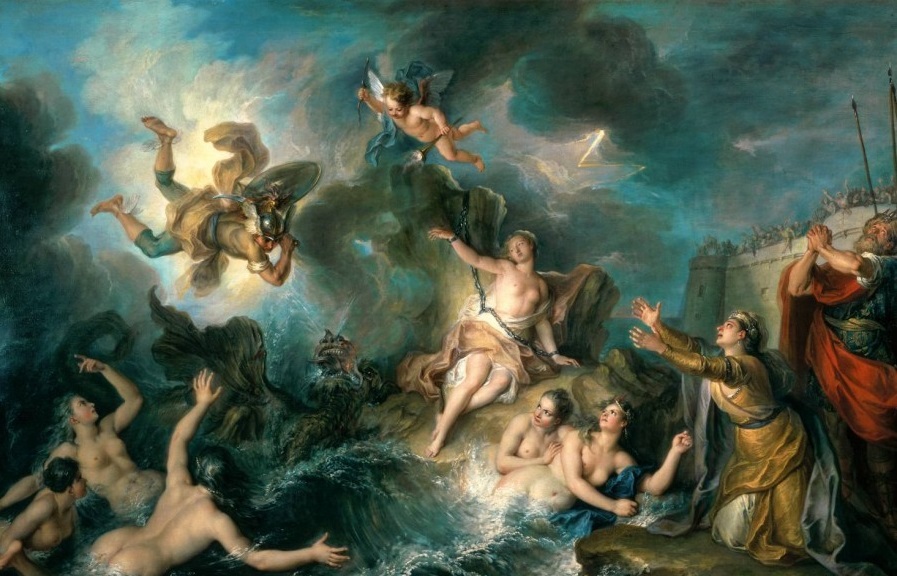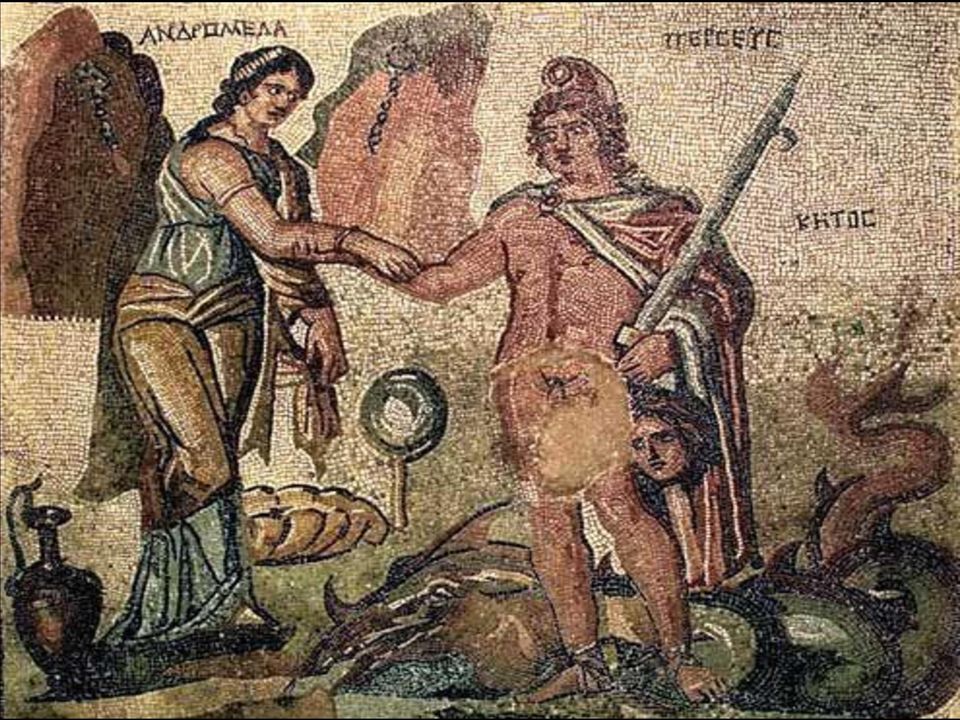Heleus
In Greek mythology, Heleus or Heleius (Ancient Greek: Ἕλειος), also Helius (Ἕλιος), was a Mycenaean prince.
Heleus was the youngest son of Perseus and Andromeda. He was the brother of Perses, Alcaeus, Sthenelus, Electryon, Mestor, Cynurus, Gorgophone and Autochthe.
In the early portion of his life, little is said about Heleus, but at some point he left the kingdoms of his father, and established a new city for himself on the Peloponnese, a town named Helos after its founder. Today the town is known as Elos, but in antiquity it was the home of the Helots of Sparta.
The fame of Heleus comes about through his connection to Amphitryon, the nephew of Heleus by Alcaeus.
Amphitryon was tasked by Alcmene to avenge her father and brothers by conquering Taphos, the land of Pterelaus.
Creon of Thebes agreed to assist if Amphitryon rid Thebes of the Teumessian Fox; this Amphitryon did by obtaining Laelaps, the legendary dog, who was at the time owned by Cephalus. Cephalus was promised a share of the spoils of the war with Taphos.
This Amphitryon had an army of Thebans from Creon, troops from Athens under Cephalus, and now Heleus joined with his own troops.
Heleus had a personal motive for assisting, for it was his brother Electryon and nephews that Amphitryon was seeking to avenge; but he too was promised a share of the war prize.
During the war, the outer islands of Pterelaus’ kingdom easily fell to the combined army, but the island of Taphos would not fall, for it was said that Pterelaus was immortal whilst he possessed his golden hair. Eventually though, Pterelaus fell, for his treacherous daughter Comaetho cut off his hair.
Subsequently Heleus and Cephalus ruled over the kingdom of Pterelaus with the islands being divided between the two. The name of Heleus has become forgotten though, because Cephalus took charge of the island of Same, which was then renamed Cephallenia (Cephalonia), and the people of the surrounding islands named Cephalllenians, no matter which island they came from.

Sources
Pseudo-Apollodorus, Bibliotheca, 2. 4. 5 - 7
Tzetzes on Lycophron, 838
Strabo, Geography, 8. 5. 2
Pausanias, Description of Greece, 3. 20. 6
Grimal, Pierre. 1990. The Concise Dictionary of Classical Mythology. Basil Blackwell Ltd. - p. 174
"Greek Legends and Myths"













